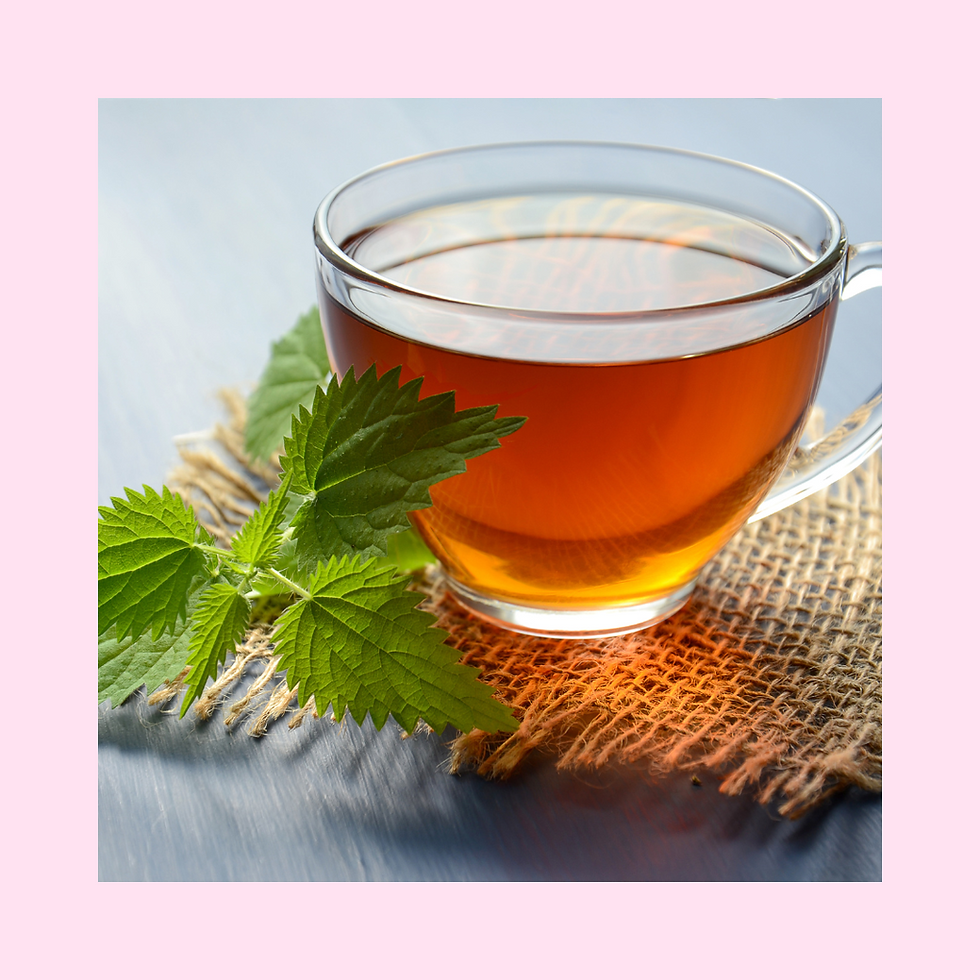Herbal Spotlight: The Healing Wonders of Nettle Leaf
- Nicole Perreault-Dryland

- Oct 23, 2023
- 3 min read

In the world of herbal remedies, few plants are as versatile and revered as the humble nettle leaf. Known by its scientific name, Urtica dioica, nettle is often considered a weed. However, its reputation as a medicinal herb is nothing short of extraordinary. From its rich history in traditional medicine to its modern applications, nettle leaf continues to captivate herbalists and health enthusiasts alike. Let's delve into the healing wonders of this remarkable botanical.
Historical Roots
Nettle leaf has an ancient history of medicinal use, dating back to the times of the Roman Empire. It was cherished for its diuretic properties and as a general health tonic. Across Europe and Asia, this plant became a staple in traditional remedies, addressing a wide range of ailments.
Nutrient-Rich Treasure
One of nettle's greatest strengths is its remarkable nutritional profile. It's densely packed with essential vitamins and minerals, including:
- Vitamins: Nettle leaf is a great source of vitamins A, C, and K. These vitamins play key roles in skin health, immune support, and bone health.
- Minerals: It's abundant in essential minerals like iron, magnesium, and calcium, which are vital for various bodily functions.
- Protein: Surprisingly, nettle contains a considerable amount of plant-based protein.
- Antioxidants: Rich in antioxidants, nettle leaf helps combat oxidative stress and inflammation, which can lead to chronic diseases.
Aids Digestion
Nettle leaf has a soothing effect on the digestive system. It's often used to alleviate symptoms of indigestion, bloating, and excessive gas. Nettle tea, in particular, is a gentle way to ease stomach discomfort.
Anti-Inflammatory Properties
Nettle leaf contains natural compounds that possess anti-inflammatory properties. This makes it an effective remedy for inflammatory conditions, such as arthritis. Regular consumption of nettle tea or extracts may help reduce joint pain and swelling.
Skin and Hair Benefits
The vitamins and minerals found in nettle leaf can have a positive impact on your skin and hair. It's been used traditionally to treat eczema, acne, and improve the overall health and appearance of the skin. Additionally, nettle is believed to promote hair growth and reduce hair loss.
Supports Immune Health
The immune-boosting properties of nettle leaf are well-documented. Its high vitamin C content helps fortify the immune system, making it a valuable ally during cold and flu seasons.
Modern Uses
Today, nettle leaf is enjoyed in a variety of forms, including nettle tea, supplements, and extracts. Its natural, earthy flavor and potential health benefits have made it a favorite among those who seek alternative and holistic wellness solutions.
Considerations and Cautions
While nettle leaf is generally considered safe, it's essential to consult a healthcare professional before incorporating it into your routine, especially if you have any underlying health concerns or are taking medications.
In the world of herbal healing, nettle leaf remains an invaluable resource. Whether you're brewing a cup of nettle tea or exploring its benefits through supplements, this botanical gem can be a vital part of your journey toward holistic well-being.
DISCLAIMER: The information presented in this article is for educational purposes only and is not intended to diagnose, treat, cure, or prevent any disease. Check with your healthcare provider first if you have concerns about your health. In addition, you should speak with your healthcare provider or pharmacist before making adjustments to your diet or lifestyle and prior to introducing herbal and nutritional supplements as they may affect any treatment you may be receiving. You are advised to disclose all nutrient and herb supplements you are using to your healthcare team.



Comments